Our life Untethered
After our safari tour we had one night a hotel for a much-needed shower and a comfortable bed. Although we are both pretty good at roughing it and we don’t always need luxury we were very pleased to have a hot working shower, room service and a soft comfy bed to sleep on! We were also very pleased to have a solid week of not moving much. The next day we were due to stay at the Banana Farm hostel just outside of Arusha. Having toured a lot, we were glad to have a base, and Mark was looking forward to not having to re pack his ruck sack for a whole week!
We got a lift to the Banana farm and was immediately taken by it. It was in the middle of a local community just outside of Arusha, lots of local people lived in the area and it didn’t have the feel of some touristy areas that separate you from the local community. The hostel is on a working farm where they produce banana, coffee fruit and other cash crops. The hostel was run by a lovely group of people who looked after us well. There was a lovely sense of community within the hostel largely created by the fact that it was communal dinning, so everyone eats together, and the food is served at the
Carolyn BAGUMA
16 chapters
15 Apr 2020
Chapter 16 - Oasis in Arusha
Arusha Tanzania
After our safari tour we had one night a hotel for a much-needed shower and a comfortable bed. Although we are both pretty good at roughing it and we don’t always need luxury we were very pleased to have a hot working shower, room service and a soft comfy bed to sleep on! We were also very pleased to have a solid week of not moving much. The next day we were due to stay at the Banana Farm hostel just outside of Arusha. Having toured a lot, we were glad to have a base, and Mark was looking forward to not having to re pack his ruck sack for a whole week!
We got a lift to the Banana farm and was immediately taken by it. It was in the middle of a local community just outside of Arusha, lots of local people lived in the area and it didn’t have the feel of some touristy areas that separate you from the local community. The hostel is on a working farm where they produce banana, coffee fruit and other cash crops. The hostel was run by a lovely group of people who looked after us well. There was a lovely sense of community within the hostel largely created by the fact that it was communal dinning, so everyone eats together, and the food is served at the
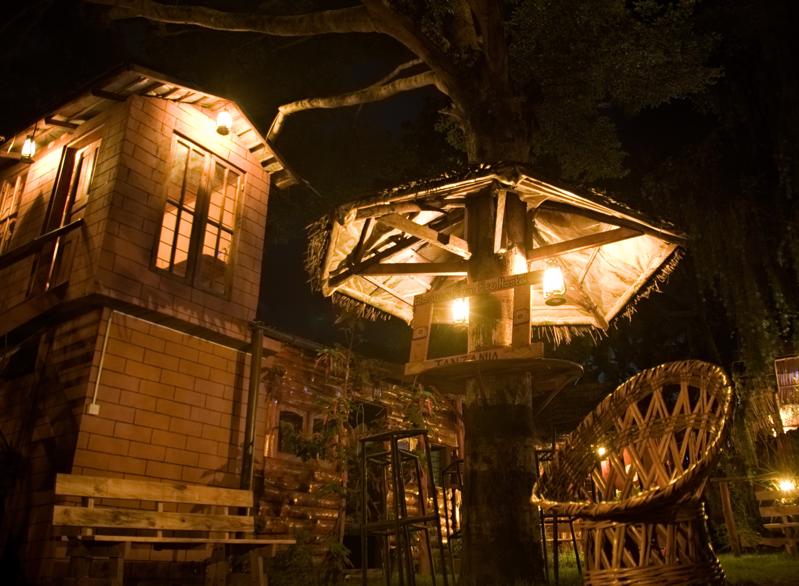
same time. The workers in the Hostel made us local food most evenings including banana stews, rice, chapati, beans etc. The food was wholesome, healthy fresh and generally delicious. We were the only ones who were going to stay at the hostel for a long duration of time, most people stopped off for one or two nights before going on a safari or flying back home after already being on one. But we enjoyed interacting with people and talking about their travel experiences.
We had planned to work as volunteers in a local charity project, but they hadn’t contacted us in a while and we both felt that we needed a rest after a long period of travelling and exploring so we took the week off to relax. One thing we both loved about the area immediately was that it was quite cool especially at night due to the altitude. Mark took the time to process a gazillion photos of wild animals and work on some GIS mapping work he had to do, and Caz took the time to write, draw, paint and generally relax. We were both very happy with our little room in the beautiful grounds of this small hostel. The main house had a fridge with a pen and paper stuck to it on which you had to mark down how many beers or sodas you had; Mark loved the fact the beer was less than one pound!
The public area had shade, a table where we could work at, and hammocks! So, there was plenty of chilling time but mixed in with being creative and work as well. The owner of the hostel was a local impressive man who had taught himself how to create biogas from
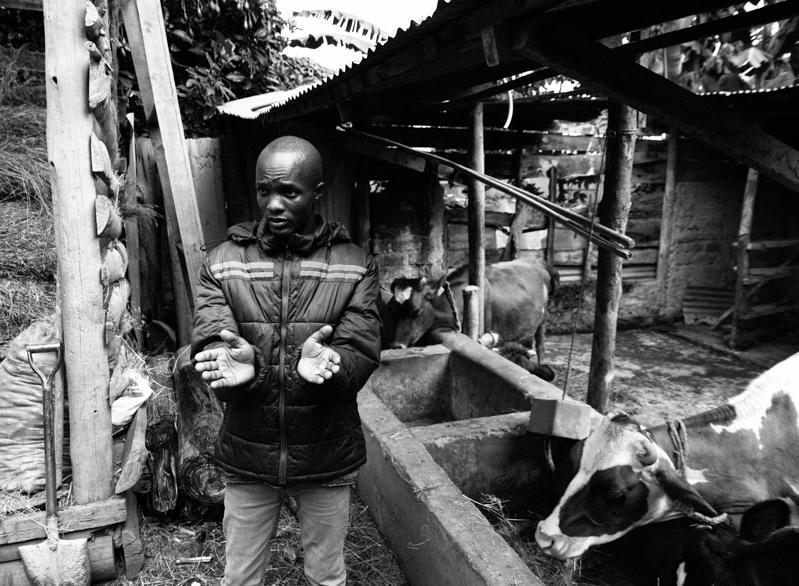
cow waste. Godwin took us on a tour of the farm and explained to us how they collected all their urine and dung from a small number of dairy cows and fed it into a biogas chamber. He had built underground tanks where the mixture of dung and urine would be processed. The bacteria from the Cows stomach would continue to feed and create methane as a by-product. This methane was tapped out of one of the tanks and was used for cooking. They could also produce electricity from the gas by means of a special generator.
On the tour we learned more of how he came to create the biogas and how after giving the technology to local farmers he was arrested by the government. After a court case and they generators he created were destroyed the government and in turn they set up a biogas company that sold the same technology to farmers at a much higher price than he was building them for. Corruption and greed seem to be part of local politics across East Africa.
Following the tour from the owner, we were passed over to one of the young Maasai guys working on the farm. He was sweet and shy and we had spotted him around but not had a chance to chat with him. He would show us more of the land as well as teach as about the plants used traditionally by the Maasai people. Although the tour was supposed to be about the medicinal plants that can be found in nature, we used the time to ask him a lot of questions about growing up in the Maasai cultures. He had a playful and adorable way about
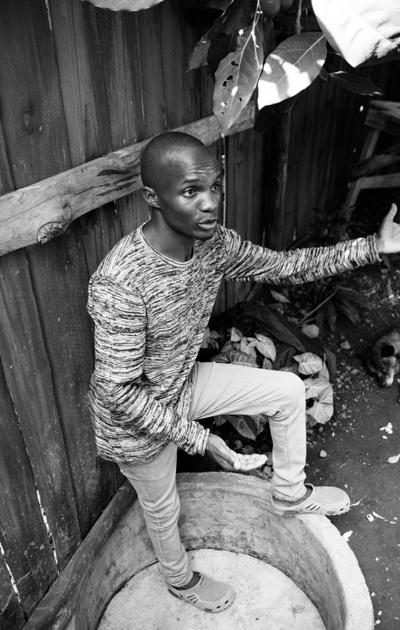
him that made his stories even funnier, from the first time he saw white people or a car to the first time accidently getting drunk off banana wine. He was open about his upbringing and living on a Maasai village. We learned that simple things like days of the week, time and age are not things that they are taught or learn unless in school, so much so, that despite being one of many siblings, he is the only one that knows their age. It was fascinating to hear that Maasai like to party too and have this unwritten social code where you can drop in on anyone’s home at night for an impromptu party. They are not all-nighters because of having to heard cattle in the early morning, but they practice this form of socialising and even have creative party invites that are basically wristbands made out of painted leaves. We noticed our Maasai friends great collection of jewellery, and once we learned he had made it and some of the decorative bits around the farm, we knew we had to buy something from him, and we had faith that they would last longer than the bracelets we had brought so far.
Because of the communal dinning, we made new friends almost every night at the hostel and spoke with lots of people about safaris and the joy of seeing the wildlife that Tanzania has to offer. Some local people including the owner commented that people tend to do
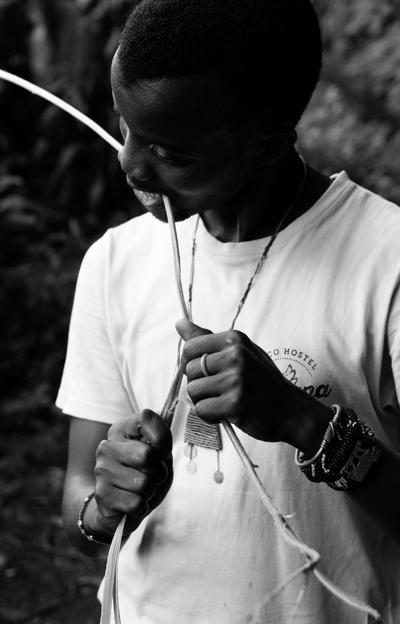
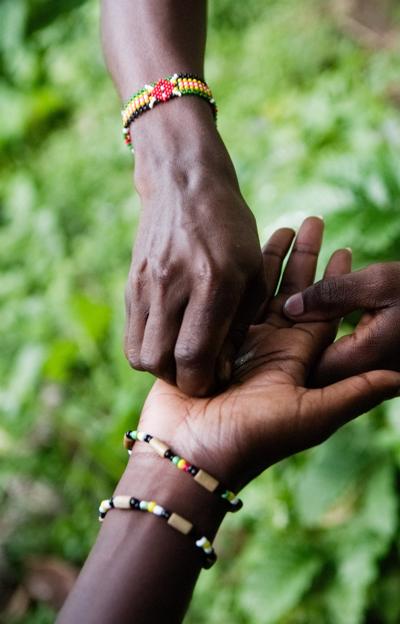
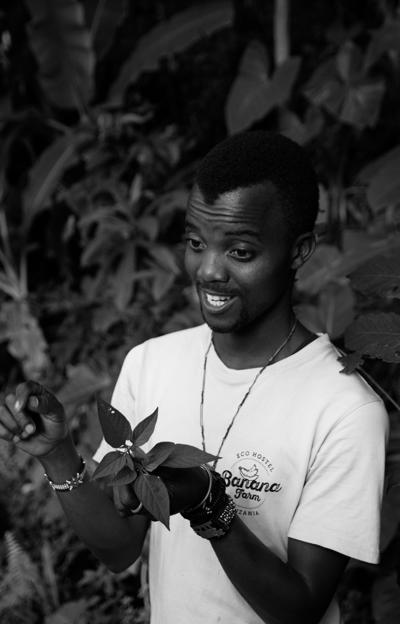
the same route and only see Arusha and the Serengeti and miss out on the beauty of other parts of Tanzania. So, we decided that if we have the time or if we come back, we will go see the less well trodden parts of this amazing country. Towards the end of the week we realized that we had hardly moved and that the hostel had everything we need including yummy snacks and meals and alcohol!
We had wanted to go out had wanted to go out in Arusha town at least once, so we asked our taxi guy that we had used earlier in the week to take us out. We had got his number from the lovely Dutch girl on our safari, and since she had stayed not to far away from where we were and used him frequently, we felt we could trust him to take us out. We had mentioned it to a couple of French guys we met at the hostel before they set off on their tour and they seemed keen to join us, so on the same evening they returned, we set out for a night out in Arusha.
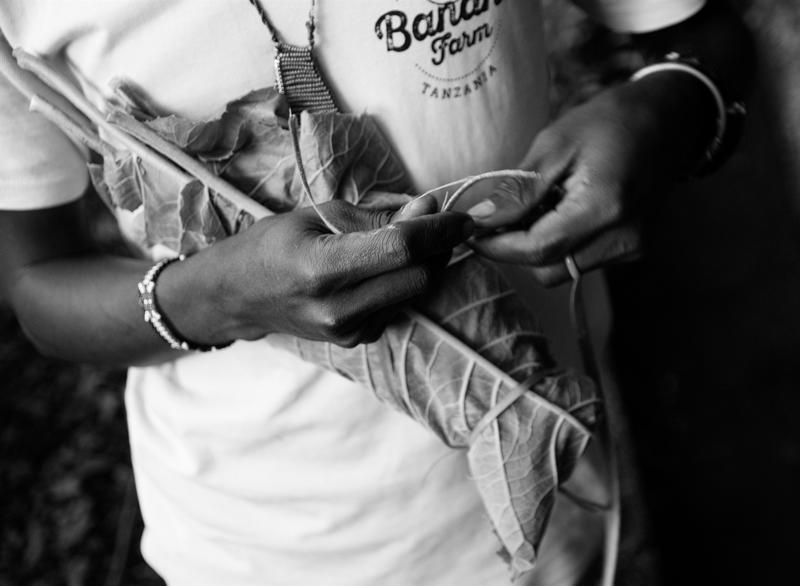
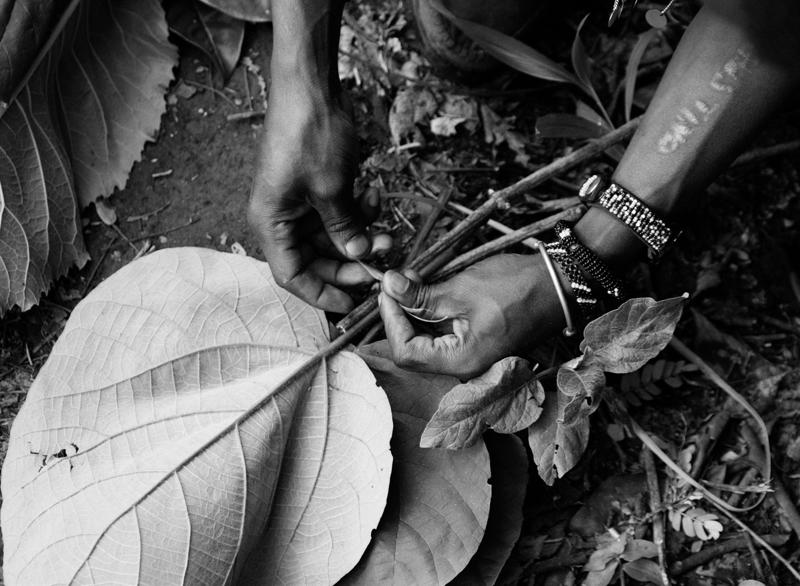
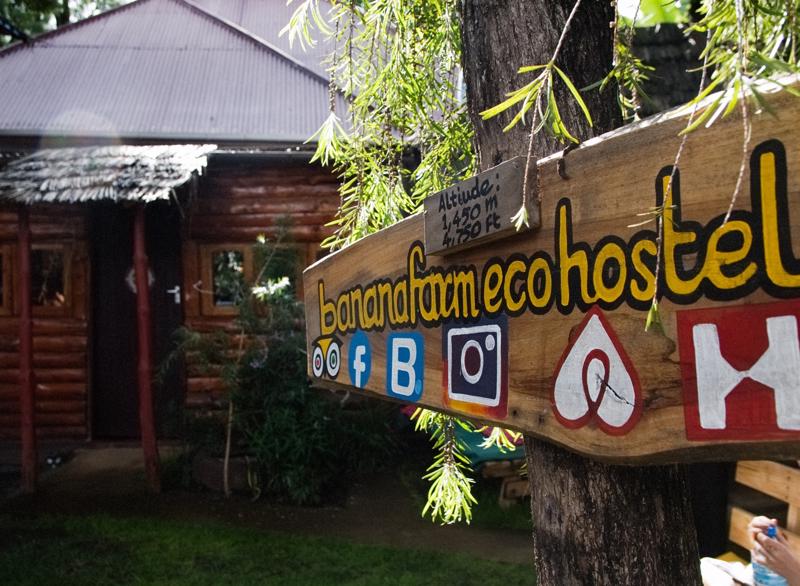
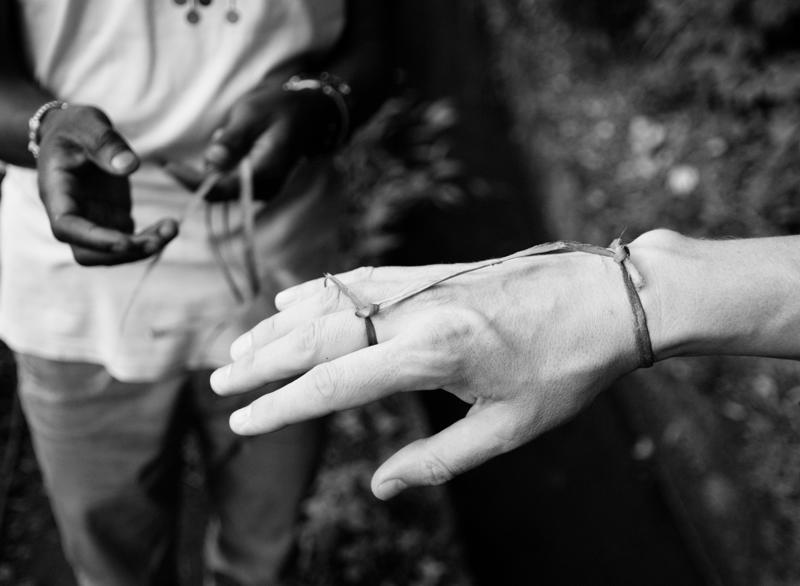
Our French friends had had some bad luck on their travels so far and had been robbed in Zanzibar, before they flew to Arusha. The circumstances of their robbing were strange and a little naive of their part, but we applauded them for carrying on their travels. After hearing how basically everything had been taken from them, we wanted them to have a good night out with people they could trust.
Our taxi buddy Roy was sweet, a teacher by day and a taxi driver/ socialite by night. He picked us up just after dinner and took us to a Bar at the near by hostel (The same place our Dutch friend stayed) to meet some other partygoers we were joining. It was pelting it down as soon as we got there, so we had to run from the van as fast as we could to avoid getting soaked.
As soon as we entered the bar, everyone turned their attention to us, at first, we thought it was us not belonging, but then we realised that the whole bar was excited to see Roy. It was clear he was a regular and had managed to make himself the man to know in the area.
The bar had a canopied room, with beer pong table, darts and a pool table in it. The rain was heavy and leaking in patches from the roof, but the music was playing, and everyone was in pretty good spirits. We made a B-line for the bar to get some drinks before the boys headed over to the pool table.
Pretty soon it was clear that we were much older than the rest of the ground and we learned that they were all students/volunteers working in the area. They were young, excitable and generally bouncy and we really felt our age in that place. Caz struck up a conversation with one of the volunteers and learned she was Sudanese, but grew up in Denmark, as her fellow volunteers.
Despite plans to head on somewhere else, we ended up staying there for a couple of hours waiting for the minibus that would be taking the bouncy volunteers. We had started to get tired of waiting, especially with the cheesy collection of songs the volunteers were playing just as the minibus turned up. While the group started to move out slowly and organise themselves, Caz took a chance to plug in her phone and play a little Chronnix music before we went.
We got in the car and started following the van of giggling volunteers who wouldn’t let their driver leave until they saw Roy. We laughed as he jumped out of the car to respond their shrieky calls for him. We were kind of glad not to be having to share a Van with all of them.
We had planned to have a proper night out, but that changed as soon as we were outside the club. Maybe it was because it was a proper nightclub or maybe it was the fact, we had to pay entrance? As soon as we realised, we were all low on cash and we needed to get more cash out, we thought it might be better to find a late-night bar instead.
Roy dutifully informed that rest of the group that he would be back and took us to try another bar he thought might be open. We hadn’t realised it was so late, so when we found the other bar closed, it wasn’t hard for us to decide on going home and let Roy enjoy himself with the rest of the young ones.
It was 2AM when we arrived at the Banana farm gates, and as one of the ladies woke up to let us in, we were glad it was not a real night of going out-out.
I guess we both needed the rest it after several long coach journeys, and with our plans having changed and we knew that we now had to do the mammoth coach journey from Nairobi to Kampala twice in one week! Our original plan was once we had moved east from Uganda to stay east and not return to Uganda until January near the end of our trip. But we now had to go to a family wedding as well as pick up Caz’z sister from the airport. So, our route had changed, and we would now be travelling Arusha over the border to Kenya and then onto Nairobi using a local shuttle, and then another coach over the border to Uganda to end in Kampala. That journey is over 20 hours of coach journeys all together and roughly 1000KM, an exhausting experience for sure.
1.
Chapter 1 - The long journey
2.
Chapter 2 - Power of a smile
3.
Chapter 3 - The Boda Way
4.
Chapter 4- The Rain
5.
Chapter 5 - On the road to Mburo
6.
Chapter 6 - Lake Mburo Safari Walk
7.
Chapter 7 - Leaving Lake Bunyoni
8.
Chapter 8 - Wildlife of Uganda
9.
Chapter 9 - Bwindi Forest Walk
10.
Chapter 10 - Journey to Fort Portal
11.
Chapter 11 - Trying to reduce plastic
12.
Chapter 12 - Road to Nairobi
13.
Chapter 13 - A few nights in Nairobi
14.
Chapter 14 - Working at Yaapha
15.
Chapter 15 - Trumper
16.
Chapter 16 - Oasis in Arusha
Share your travel adventures like this!
Create your own travel blog in one step
Share with friends and family to follow your journey
Easy set up, no technical knowledge needed and unlimited storage!
© 2025 Travel Diaries. All rights reserved.